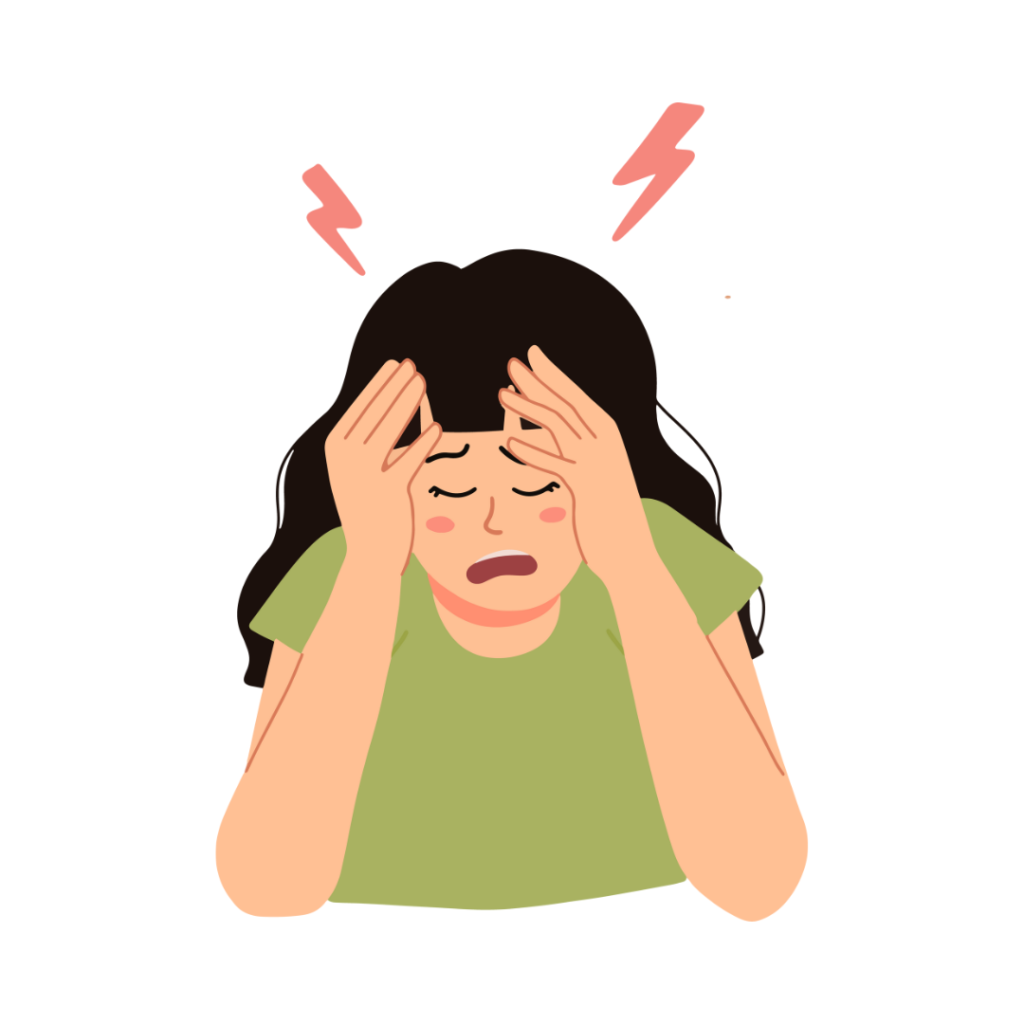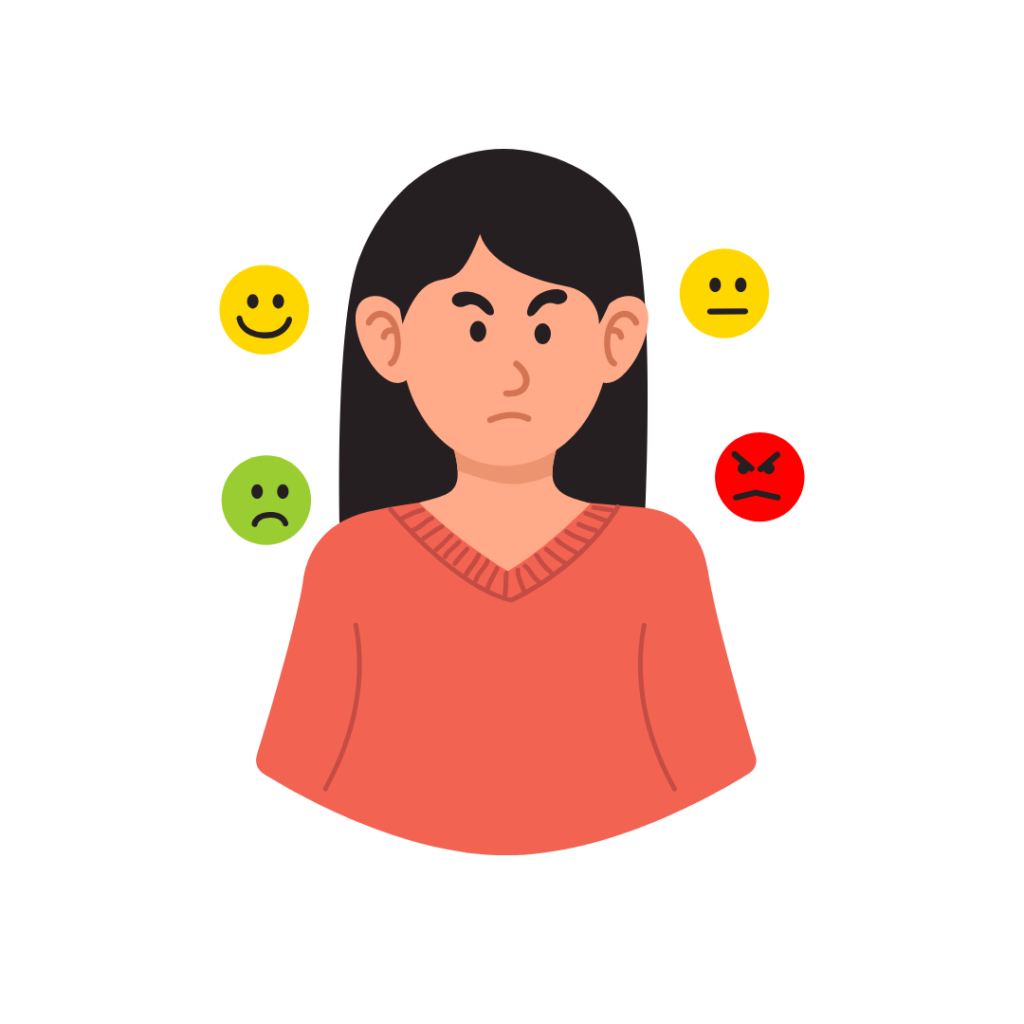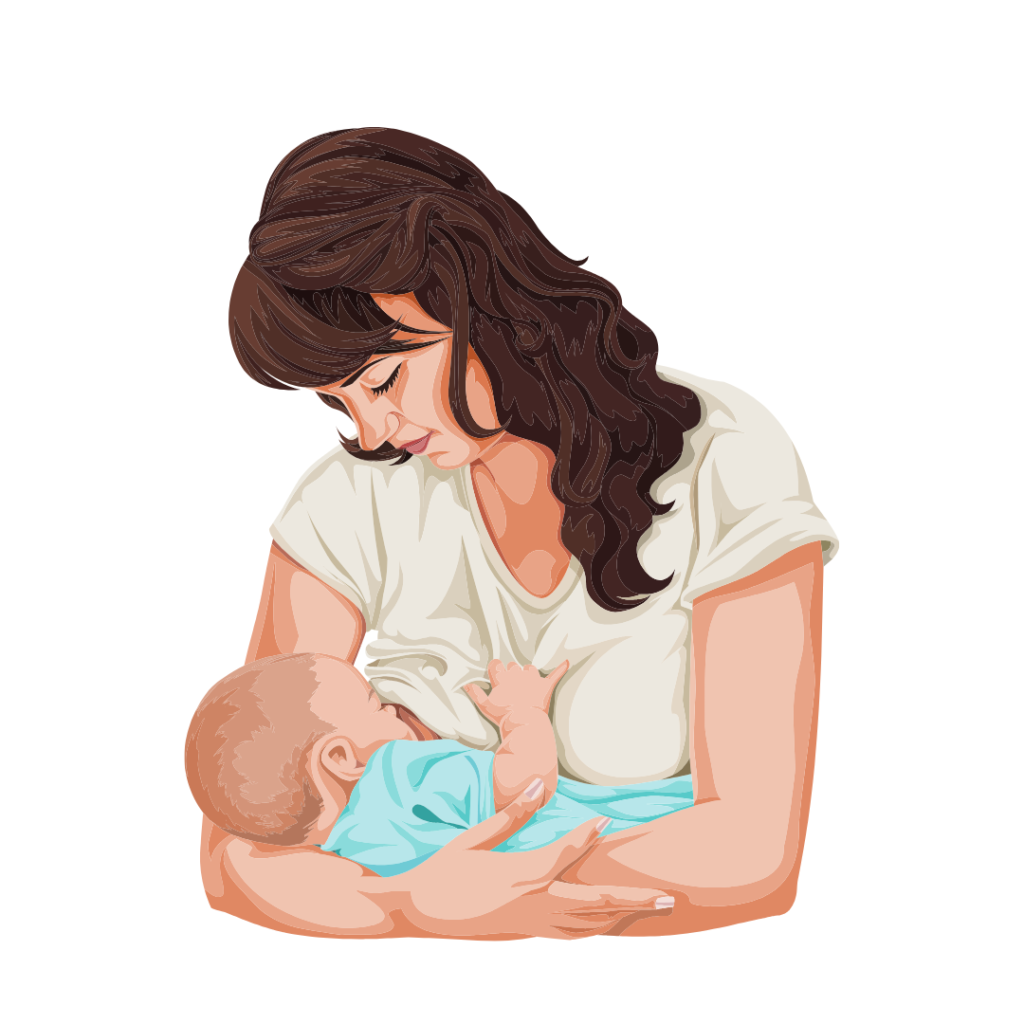The journey of motherhood doesn’t end at childbirth—it evolves into a new chapter filled with joy, challenges, and constant change. As your baby takes their first breaths, the world embraces their arrival. Everyone wants to see the baby, hold the baby, and ask about the baby. But amidst all the excitement, it’s easy to forget someone as important as you, Mama.
You’ve just completed one of the most miraculous and physically demanding experiences a human can go through—growing and delivering a life. Your body has stretched, shifted, and sacrificed. Your heart has expanded in ways you never thought possible. And now, in the quiet (and sometimes chaotic) moments after birth, your healing, your emotions, and your needs matter more than ever.
This is where postpartum care steps in—not just as a medical follow-up, but as a compassionate embrace. It’s about honoring your journey, checking in with your physical recovery, supporting your mental well-being, and helping you adjust to life with your little one.
Because when you’re cared for, empowered, and heard, you’re better able to care for your baby and enjoy the beauty of motherhood without burning out.
Let’s explore why postpartum care is not just important—it’s essential. Here’s how it plays a key role in your healing, your confidence, and your long-term well-being in this beautiful, brave chapter of life.
Table of Contents
What Is Postpartum Care?
Postpartum care refers to the support, monitoring, and medical attention a mother receives after giving birth, typically during the first six weeks following delivery, also known as the fourth trimester. This critical time is when a mother’s body begins to heal and adjust, not only physically but emotionally and mentally as well.
Many people assume that once the baby is born, the hardest part is over. But for most new moms, postpartum recovery is its unique journey—a mix of hormonal changes, physical healing, sleepless nights, and emotional transitions. Postpartum care helps ensure that this transition is as safe, supported, and manageable as possible.
This type of care goes far beyond a single six-week check-up. It includes continuous support, professional guidance, and access to resources that help mothers care for themselves while learning to care for their newborn. Whether you’ve had a vaginal birth or a C-section, whether it’s your first baby or your fifth, every mother deserves a well-rounded postpartum care plan.

Key Components of Postpartum Care
Postpartum care can include:
- Physical recovery support: Monitoring how the body is healing after birth, checking for complications such as infections or blood pressure issues, and managing postpartum bleeding.
- Wound and incision care: For moms who have had a C-section or episiotomy, this includes checking on healing and pain management.
- Breast and lactation support: Assistance with breastfeeding challenges, sore nipples, or blocked ducts, along with tips on positioning and latching.
- Mental health screening: Emotional changes are expected, but postpartum depression and anxiety are serious and common. Screening and early intervention can be life-changing.
- Nutrition and rest guidance: Moms need nourishment and sleep to heal and produce breast milk, yet these can be hard to come by. Postpartum care includes practical advice for managing both.
- Birth control and family planning: Guidance on contraception, spacing pregnancies, and resuming intimacy when you’re ready.
- Newborn care tips: While pediatricians focus on the baby’s health, postpartum visits often touch on feeding schedules, sleep safety, and diapering help too.
The Emotional Side of Care
Postpartum care isn’t only about healing your body. It also provides a safe space to talk about your experience—your birth story, your fears, your wins, and your worries. This time can be overwhelming, especially with societal pressure to “bounce back.” True postpartum care reminds mothers that recovery is not a race—it’s a deeply personal process.
With compassionate care, mothers can feel more confident, connected, and less isolated during this vulnerable time.
Why Postpartum Care Matters
The days and weeks after childbirth are a whirlwind of emotions, changes, and new responsibilities. While most people focus on the baby’s arrival, the mother’s recovery and well-being are just as important. This is where postpartum care plays a vital role. It’s more than just a follow-up appointment—it’s a holistic support system that ensures the health, healing, and happiness of the mother.
After nine months of pregnancy and the intensity of labor or surgery, the body needs time to recover. However, physical healing is only one part of the postpartum journey. Emotional health, mental clarity, hormonal balance, and adapting to a new lifestyle all require care and attention. Postpartum care ensures that mothers are not left to navigate this transformative time alone.
Physical Recovery
Childbirth—whether vaginal or via C-section—is physically demanding. Postpartum care monitors the healing process and helps manage:
- Uterine contractions as the womb returns to normal size
- Perineal or incision healing
- Postpartum bleeding (lochia)
- Breast engorgement, soreness, or nipple pain
- Sleep deprivation and fatigue
Without proper care, undetected complications like infections, blood clots, or delayed healing can become serious. Routine check-ups and open communication with healthcare providers can make all the difference.

Mental and Emotional Well-being
Postpartum mood disorders, including baby blues, postpartum depression, and anxiety, affect many mothers, sometimes silently. Hormonal fluctuations, emotional stress, and exhaustion can lead to intense feelings of sadness, guilt, or overwhelm.
Postpartum care includes screenings and conversations about mental health to ensure mothers are supported emotionally, not just physically. Addressing these concerns early allows mothers to access therapy, medication, or community support, so they can begin healing with care and compassion.

Breastfeeding and Baby Care Support
Breastfeeding can be incredibly rewarding but also challenging. Many mothers face issues like latching problems, low milk supply, or clogged ducts. Postpartum care provides access to lactation consultants and feeding guidance to make the process smoother and less stressful.
Beyond breastfeeding, postpartum visits often cover newborn care tips—from soothing techniques to sleep habits. This practical support builds a mother’s confidence and reduces unnecessary stress.

Encouragement, Education & Empowerment
One of the most powerful aspects of postpartum care is empowerment. When mothers feel seen, heard, and supported, they’re more equipped to care for their babies and themselves. Regular postpartum care encourages moms to ask questions, voice concerns, and learn without judgment.
It also includes discussions on family planning, pelvic floor recovery, safe contraception, and when it’s okay to return to exercise or intimacy—all of which are essential but often overlooked.
What Happens at a Postpartum Check-Up?
You’ll typically see your healthcare provider within 6 weeks after delivery, though some moms may need earlier follow-ups. During this visit, you can expect:
- A physical exam (healing check, weight, blood pressure)
- Breast and uterus checks
- Screening for postpartum depression
- Talk about your delivery experience
- Guidance on rest, diet, and hydration
- Tips for adjusting to motherhood
Top 5 Reasons Why Postnatal Care Is Important
Bringing a new life into the world is an incredible, life-changing experience. But the journey of motherhood doesn’t stop at childbirth—it continues as your body heals, your emotions settle, and you learn to care for your baby. Amidst the sleepless nights and endless diaper changes, it’s easy to forget someone very important: you, mama.
That’s where postnatal care, also called postpartum care, comes in. It’s not just about a routine check-up; it’s about nurturing the mother after the delivery, helping her heal, regain strength, and adapt to her new role. Many new moms focus entirely on their babies, forgetting they, too, need attention, support, and care.
Let’s take a closer look at the top five reasons why postnatal care is essential for every mother.
1. 💪 Physical Recovery After Birth
Pregnancy and childbirth are incredibly demanding on the body. Whether you had a vaginal birth or a cesarean section, your body needs time and support to recover. Postnatal care ensures that your healing is monitored and guided by healthcare professionals who understand the unique physical changes happening during this time.
Here’s what postnatal care typically includes for physical recovery:
- Monitoring postpartum bleeding (lochia) to ensure it’s within the normal range
- Checking for signs of infection at the site of any stitches or C-section incision
- Managing uterine contractions as your uterus returns to its normal size
- Addressing pain or discomfort, whether from vaginal tearing, hemorrhoids, or afterpains
- Helping with breast care, especially if you’re breastfeeding and dealing with sore nipples or engorgement
Without proper postnatal care, complications such as infections, excessive bleeding, or even serious conditions like postpartum preeclampsia can go unnoticed. Early detection and treatment are key to a full and safe recovery.
2. 🧠 Mental and Emotional Health Support
Welcoming a new baby can be joyful and overwhelming all at once. Many mothers experience “baby blues” in the first few days after birth, feeling teary, irritable, or anxious. For some, these feelings persist and deepen into postpartum depression (PPD) or postpartum anxiety, both of which are common but serious mental health conditions.
Postnatal care includes screenings and conversations with your healthcare provider about your emotional state. They’ll ask how you’re coping, how your mood has been, and whether you’re getting enough rest and support.
Mental health support may include:
- Referrals to therapists or counselors specializing in postpartum care
- Guidance on managing stress, anxiety, or isolation
- Support groups where you can talk with other moms going through similar experiences
- Safe treatment options like medication or natural therapies, depending on your needs
Remember: asking for help is a sign of strength, not weakness. You’re not alone, and postnatal care is there to remind you of that.
3. 👶 Breastfeeding and Baby Care Guidance
Breastfeeding can be a beautiful bonding experience, but it doesn’t always come naturally, and that’s okay. Many new mothers face challenges such as latching issues, milk supply concerns, or discomfort during feeding.
Postnatal care gives you access to lactation consultants and health professionals who can:
- Help you find the best breastfeeding positions
- Assess your baby’s latch and feeding habits
- Offer solutions for nipple pain, clogged ducts, or mastitis
- Help you decide whether to pump, supplement, or formula feed based on your lifestyle and comfort
But it doesn’t stop at feeding. Postnatal visits also allow you to ask about general baby care tips, including:
- Newborn sleep routines
- Diapering and hygiene
- Soothing techniques
- Understanding your baby’s cues
Having this guidance early on can relieve stress and boost your confidence in those first few weeks of motherhood.
4. 💞 Sexual Health and Family Planning
Many mothers have questions about their bodies after childbirth—when it’s safe to resume sexual activity, whether their pelvic floor muscles are healing, or what kind of birth control they can use while breastfeeding.
Postnatal care provides a safe, judgment-free space to discuss these intimate topics. Your provider will assess:
- Pelvic floor health and any need for physical therapy
- Healing of vaginal tears or C-section incisions
- Hormonal changes affecting libido or vaginal dryness
- Contraceptive options that are safe during breastfeeding
Discussing these topics openly helps prevent future complications and ensures you’re fully informed about your options.
5. 🌷 Building Confidence in Motherhood
One of the most overlooked benefits of postnatal care is the emotional reassurance it offers. Those first few weeks of motherhood can be filled with self-doubt, especially when every day brings something new.
Whether you’re wondering if your baby’s poop is the right color or stressing over sleep schedules, postnatal care gives you the chance to ask questions, express concerns, and get expert advice without judgment.
Your provider is there to reassure you that:
- You’re doing a great job, even on the tough days
- It’s normal to feel uncertain, tired, and emotional
- Every baby (and every mom) is different—there is no one-size-fits-all approach
Having this ongoing support can boost your confidence, reduce anxiety, and help you feel more connected to your role as a mother.
Conclusion
The postpartum period is often called the “fourth trimester” for a reason—it’s a time of profound transformation, healing, and adjustment. While the world shifts its focus to the newborn, it’s essential to remember that mama needs care too.
From physical recovery and emotional support to breastfeeding guidance and confidence-building, postpartum care is about nurturing the nurturer. It’s not a luxury—it’s a necessity for every mother’s well-being.
So, if you’re a new mom or know someone who just gave birth, let this be a gentle reminder: you matter, your health matters, and your healing matters. Prioritize your postpartum care. Because when moms are cared for, the whole family thrives.
🤔 Frequently Asked Questions (FAQ) About Postpartum Care
1. How long does postpartum care last?
Postpartum care typically covers the first 6 weeks after childbirth, but recovery can take longer depending on your body and birth experience. Some aspects of postpartum healing—especially emotional and hormonal—can continue for several months. Always communicate with your healthcare provider if you feel like you need ongoing support.
2. Do I need postpartum check-ups if I feel fine?
Yes! Even if you feel okay, your body is going through internal changes that might not be obvious. Postpartum visits help catch silent complications, monitor healing, and offer valuable guidance on mental health, breastfeeding, and contraception.
3. What happens during a postpartum check-up?
Your healthcare provider will check your physical recovery (bleeding, uterus, incision healing), screen for postpartum depression, ask about breastfeeding, and discuss birth control or intimacy. It’s also your chance to ask any questions or express concerns—no topic is too small!
4. What if I don’t have a strong support system—can I still access postpartum care?
Absolutely. Many hospitals, clinics, and community health centers offer affordable or free postpartum services. You can also reach out to lactation consultants, doulas, mental health counselors, or online mom communities for support.
5. Is postpartum care only for first-time moms?
Not at all! Every pregnancy and birth is different—even for experienced moms. Your body and mind need support every time you give birth. Postpartum care helps you recover properly and adjust to life with a new baby, no matter how many children you’ve had.
6. How can I tell if I’m experiencing postpartum depression or just baby blues?
It’s normal to feel emotional or overwhelmed in the first few days after birth—this is often referred to as the “baby blues.” However, if these feelings last longer than two weeks, become intense, or interfere with your daily life (like not bonding with your baby, feeling hopeless, or withdrawing from loved ones), it could be postpartum depression. Don’t wait—talk to your healthcare provider. You deserve support and healing.
7. Can I exercise during the postpartum period?
Yes, but only when your healthcare provider gives you the green light. Most women can start gentle activities like walking after a couple of weeks, while more intense workouts may need to wait until around 6 weeks postpartum (or longer after a C-section). Start slow, listen to your body, and focus on healing over hustle.
8. Is it normal to still look pregnant weeks after giving birth?
Absolutely! It takes time for your uterus to shrink and your body to adjust after nine months of growing a baby. Bloating, fluid retention, and abdominal separation (diastasis recti) are also common. Be kind to yourself—healing is not instant, and your body has done something incredible.
9. How can I get better sleep with a newborn?
Postpartum sleep is challenging, but a few strategies can help:
- Sleep when your baby sleeps (yes, really!)
- Accept help from family or friends
- Create a calming nighttime routine for both of you
- Share nighttime duties with a partner
Even short naps can make a big difference. Prioritize rest whenever possible—you’re recovering, not just “resting.”
10. What should I include in a postpartum care plan?
A solid postpartum care plan should include:
- Scheduled follow-up appointments
- Meal prep or food delivery options
- Help with baby care (partner, family, doula)
- Mental health support resources
- A realistic rest and recovery timeline
- Self-care essentials (pads, comfy clothes, snacks, water bottle)
Think of it as a healing toolkit—because you deserve to be taken care of, too.








